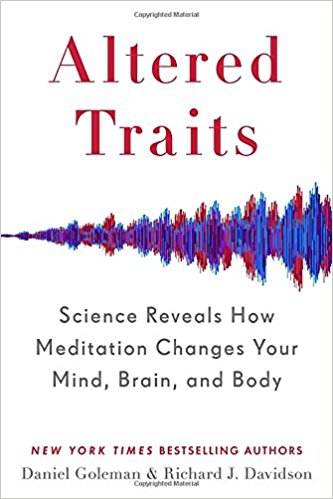The deep path: The original aim of Meditation is to do deep exploration of the mind toward a profound alteration of self
The wide path: To include at least a bit of mindfulness in their day
Visuddhimagga, path to purification: the definitive guidebook for meditators in Burma and Thailand
- Note without reactively whatever comes to mind
- Glimpse our minds as a set of processes, rather than getting swept away by seductions of our thoughts, we enter the path of insight
- Insight versus Concentration
high levels of concentration leads to mental high - in itself a distraction
- insight leads to transformation of self
freeing the mind from negative emotions
- body scan exercise
- seasoned Zen meditators: decoupling of higher and lower brain regions (amygdala)
root cause of suffering
attachment and aversion
- builds compassion
- Meditation through visualization builds concentration but not insight
- Neuroplasticity: repeated experience can change the shape of the brain
nature and nurture working hand in hand
- Multitasking harms cognitive control - ability to focus on a specific task while resisting distractions
- Avoid sugar
- Panchakarma - five treatments
- Zen master: the faculty of bringing back a wandering attention over and over again is the very root of judgement, character and will
- Dark nights: a thick mixture of morbid doubt, self-loathing, anger, guilt and anxiety
to break through with continued practise
- traits will continue to alter even at the highest levels of meditation practice (50,000 hours of practice)
- higher levels of connectivity between prefrontal coretex and amygdala, the less active the latter.
connection density has direct correlation with hours of meditative practice
- Find a teacher who is more seasoned than you are
